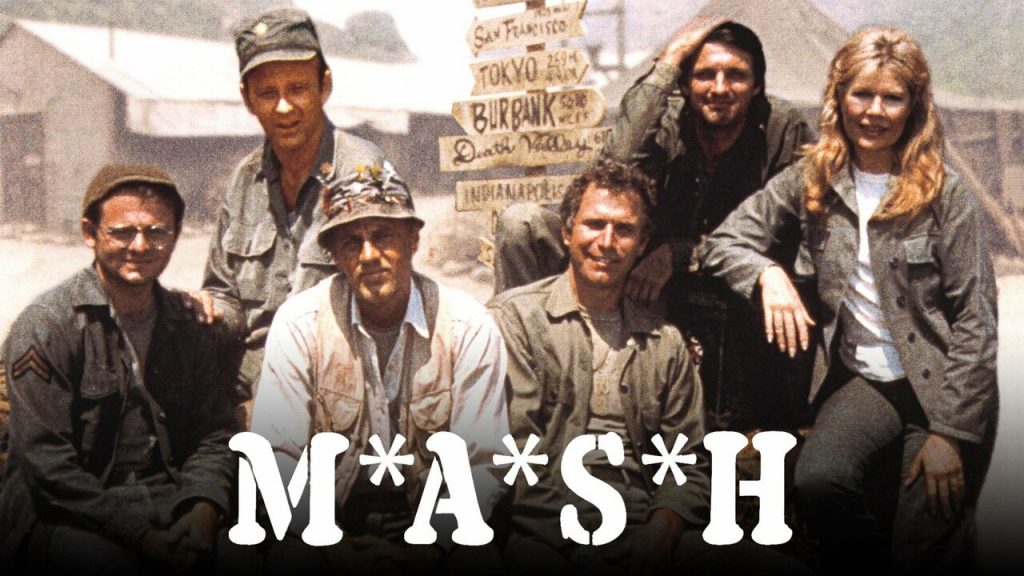
I always resented the series M*A*S*H.
This had nothing to do with the merits of the multiple Emmy Award-winning series, or the fact that, when my career began at TV Guide Canada shortly before the series ended, it was a pain having to shift keys and type an asterisk every time in between capitalizing the letters M A S H. Well, maybe it had a little to do with that.
My objection to the series was purely borne of frustration and envy. During our university days, M*A*S*H was the favourite series of my then girlfriend. As I sat through another 30 minutes lost on a Monday night, it felt a bit much having to compete with the era’s most progressive male, Alan Alda’s Hawkeye Pierce. One couldn’t help feeling a bit like Frank Burns.
Neither of these issues are discussed in network television’s first documentary special of 2024. M*A*S*H: The Comedy That Changed Television. It airs January 1 on Fox and not CBS where the series ran from 1972 to 1983.
The series was shot on the Fox Studio lot, however, and the Fox network happened to have a two-hour hole on its New Years Day schedule. According to documentary executive producer John Scheinfeld, who tells the whole story on Ken Levine’s essential podcast Hollywood & Levine, that is how he finally landed a network for a special he’d been banking interviews for and trying to shop around for more than eight years.
As Levine, who wrote on M*A*S*H with his partner David Issacs, notes, you’d think that a series which still holds the record for the biggest series finale audience of all time (an estimated 121.6 million viewers) would be a snap to sell.
advertisement
Not to Netflix or Hulu, Scheinfeld discovered. Both steaming services passed because they mainly program to millennials, they said, and content from 40 or 50 years ago are just too old for them to salute.
Scheinfeld has made terrific documentaries about Herb Alpert, Garry Marshall and Blood, Sweat & Tears, as well as Dick Cavett’s Vietnam and Dick Cavett’s Watergate for PBS. (All touching on careers or issues dating back 40 to 50 years or so – are you paying attention, Netflix and Hulu?) In terms of pop culture and even politics, the producer knows this era well. He also happens to know many of the writers on M*A*S*H and interviewed them, banking many angles on a hoped-for future doc — and then used none of those interviews. When the deal was finally in place, the network insisted he focus on the cast.
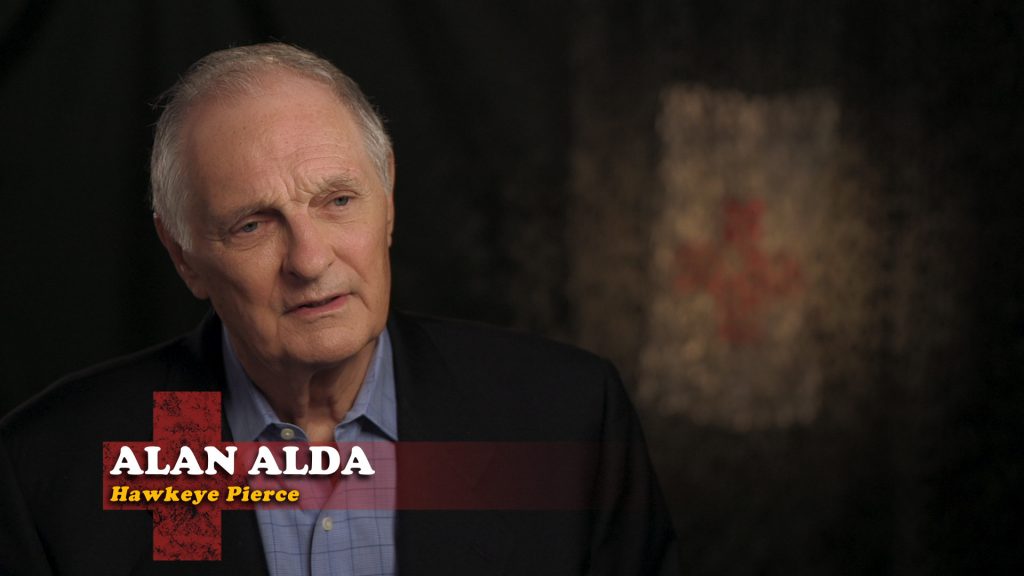
For two hours, between commercials, that is what he does. It works because M*A*S*H had a large ensemble of gifted actors plus quite a turnover of principle characters over its 11-season run. Scheinfeld and company follow them more-or-less chronologically and that helps demonstrate what the series did better than most: change characters, not simply change cast members. Make sure the next commander or surgeon or whoever is nothing like the one who just left.
The documentary presents fresh interviews with many of the main cast members, including Alan Alda (Hawkeye), Loretta Swit (Margaret “Hot Lips” Houlihan), Gary Burgoff (Radar O’Reilly), Mike Farrell (B.J. Hunnicutt), and Jamie Farr (Cpl. Max Klinger). A few they caught up with just in time, including William Chritopher (Father Mulcahy), who died at 84 in 2016, Wayne Rogers (Trapper John), 82 when he died in 2015. A few other departed cast members are seen in archived interviews, including McLean Stevenson (died 1996) who played Col Henry Blake and Larry Linville (d. 2000) who played Frank Burns. Harry Morgan, who joined the series in later years as Col. Potter, was 96 when he died in 2011.
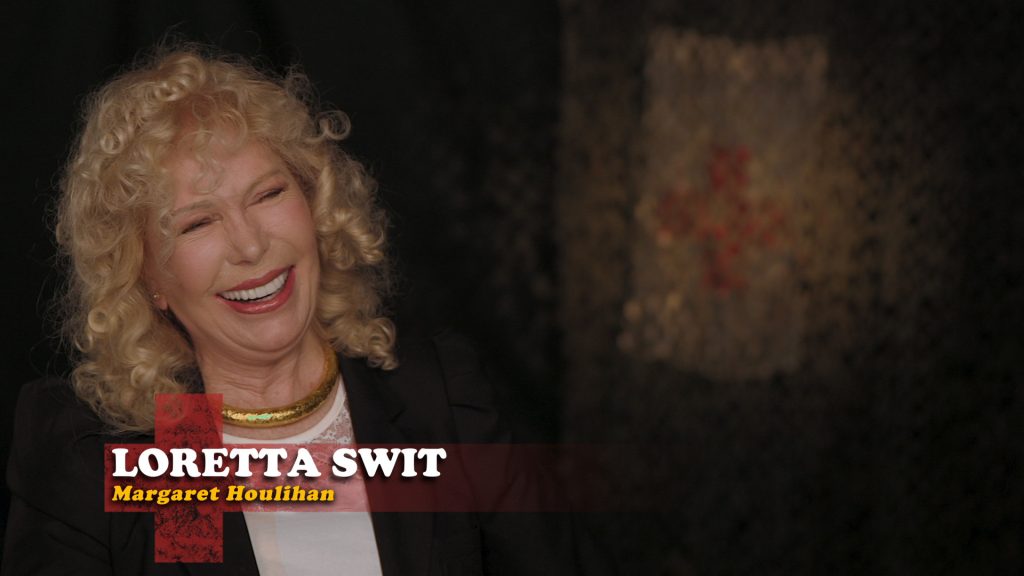
One cast member Scheinfeld missed out on was David Ogden Stiers, who played fussy Major Charles Emerson. The actor was 75 when he died in 2018. The producer asked, but Stiers apparently always turned down requests to look back at the series.
That is a large cast, and just telling their story, albeit fleshed out by series creators Gene Reynolds and Burt Metcalfe, along with writer/producer Larry Gelbart, makes for a well-paced documentary. The clips are well chosen; Scheinfeld says all 251 episodes were reviewed in making the doc.
Did M*A*S*H change television? That argument is made but given the context of the recent passing of Norman Lear, and renewed interest in his groundbreaking network comedies of the early ‘70s, M*A*S*H can be seen as an important part of a new maturity in network comedy. The change was driven by creators, writers and actors who were ready to tell smarter stories while, at the same time, making audiences laugh.




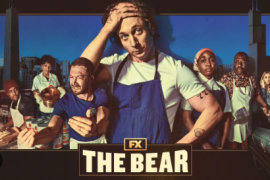

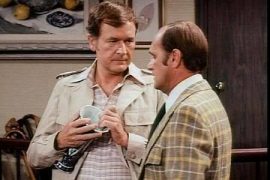
2 Comments
Happy New Year, Bill!
M*A*S*H really DID change comedy. It showed that a sitcom could have scenes or occasionally almost full episodes without back-to-back-to-back laughs. Serious stuff.
Unfortunately, the pendulum has since swung too far the other way and now there are too many comedies where there are simply no laughs to be had at all.
A very partial list: The Bear. Barry. Dead To Me. Some are very good shows.
But they aren’t comedies.
Good point Pat. And Happy New Year to you as well!